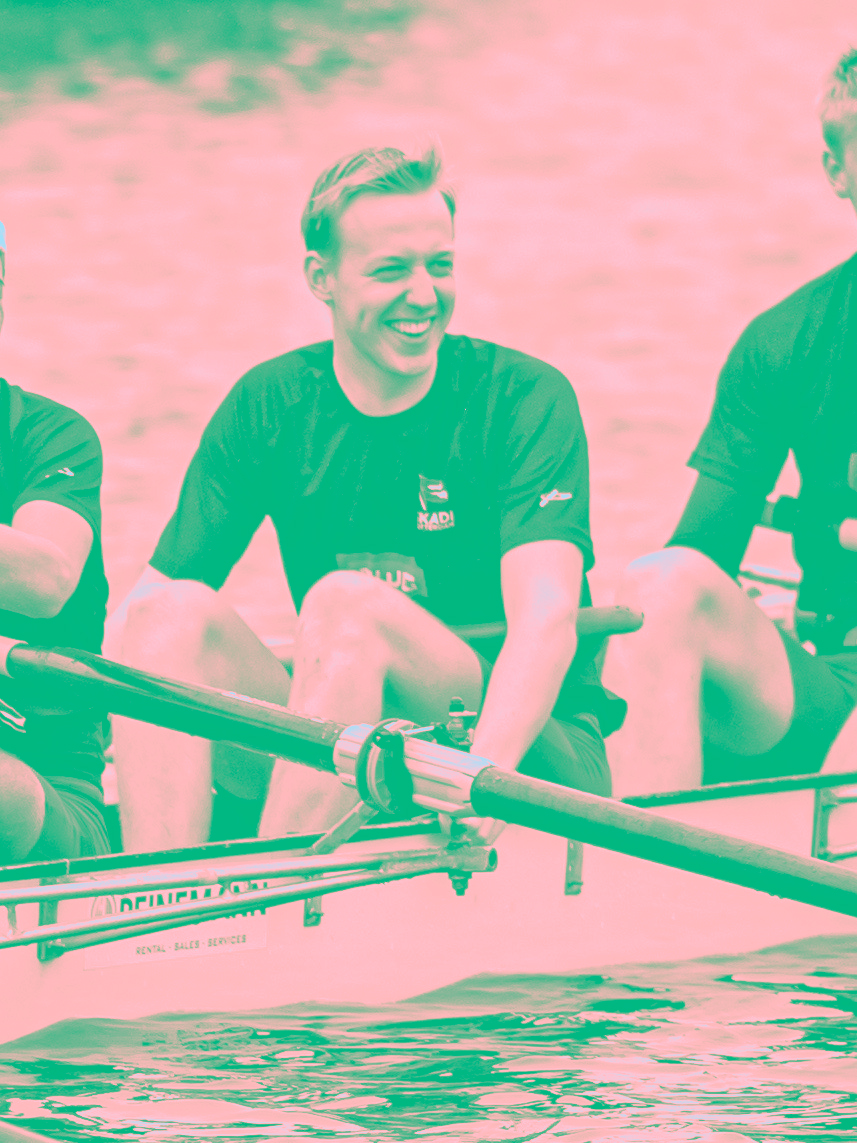RUI DE BOER

Dual Degree student RUI DE BOER studies Fine Art at Willem de Kooning Academy (WdKA) and Arts and Culture Studies (IBACS) at Erasmus University Rotterdam (EUR). He is currently in his second year and is working on a research project about toxic masculinity.
What made you choose the Dual Degree?
I didn't know about the Dual Degree until my last year of high school. I was still having difficulty choosing what I wanted to do, either art school or university. Then a teacher mentioned the RASL Dual Degree and recommended IBACS and WdKA. I was very interested, so I went to the open day and realised that this was exactly what I wanted to study!
How would you say the arts and sciences reinforce each other?
With my work I would really like to change things, question assumptions or even start conversations about difficult topics. For example, I’m now working on a project about toxic masculinity. And there I see how the artistic and academic sides reinforce each other. At WdKA, the focus is on contemporary topics and artistic movements. Our work is driven by personal fascinations, and students are really committed to topics they are interested in, and they push each other to do further research. At EUR, the focus is on everything around these topics, from a more theoretical perspective. For example, on economics and how the media influence society. This academic perspective provides me with tools that I can bring into my art practice, which enables me to go much more in-depth when creating an artwork. At this moment it is not really important for me to have a really good artistic outcome. I am more interested in the process, seeing what happens when these artistic and academic sides inform one another.
As a Dual Degree student, what makes you different from other students at your institutions?
I think that, in doing a Dual Degree, I am developing a really unique set of skills. Through IBACS I am more informed about everything that is happening in the society and the economy within which my work is located. And WdKA has taught me a completely different way of thinking. I learned to question things: why something is a certain way, why I want to do what I want to do, and why I do things in the way that I do them. This critical way of thinking is very useful at IBACS, but also outside of my studies, in my personal life.
How does participating in the Dual Degree enable you to build a network across the institutions?
Within WdKA it’s very easy to develop contacts. Not only within Fine Arts but also with people from other studies, such as Illustration and Photography. People are really motivated to work together on projects. In EUR, you can also make connections, but in a different way. Usually, this goes through student associations. For example, I am a member of Skadi, the student rowing association in Rotterdam. Besides that, there is also a lot of contact between Dual Degree students from different years. So, the network is really diverse.
What opportunities does the Dual Degree offer you?
I think the Dual Degree helps me develop a unique set of skills compared to single degree students, which allows me to bring something new to the table. I have always dreamt of working for Disney’s animation studios and believe that with my background, I could really add something there. On one hand, I have a critical and artistic attitude. And on the other, I also have academic knowledge and understand how, for instance, society reacts to certain things or how the media change certain perspectives. The way I see it, there are a lot of opportunities to take important topics such as toxic masculinity or the Black Lives Matter movement into consideration, to spread a different kind of message.
What do you think should be the next step for the Dual Degree?
I think there should be more projects within the Dual Degree to encourage combining the arts and sciences. Right now, there is the option of joining Ice Breakers, a collaborative research project on how we can stimulate people in public spaces to have more spontaneous interactions with others. It would be nice if there were projects about a range of different topics that anyone could participate in. I also went to a RASL conference last year at the Kunsthal. The programme consisted of lectures and workshops by people who